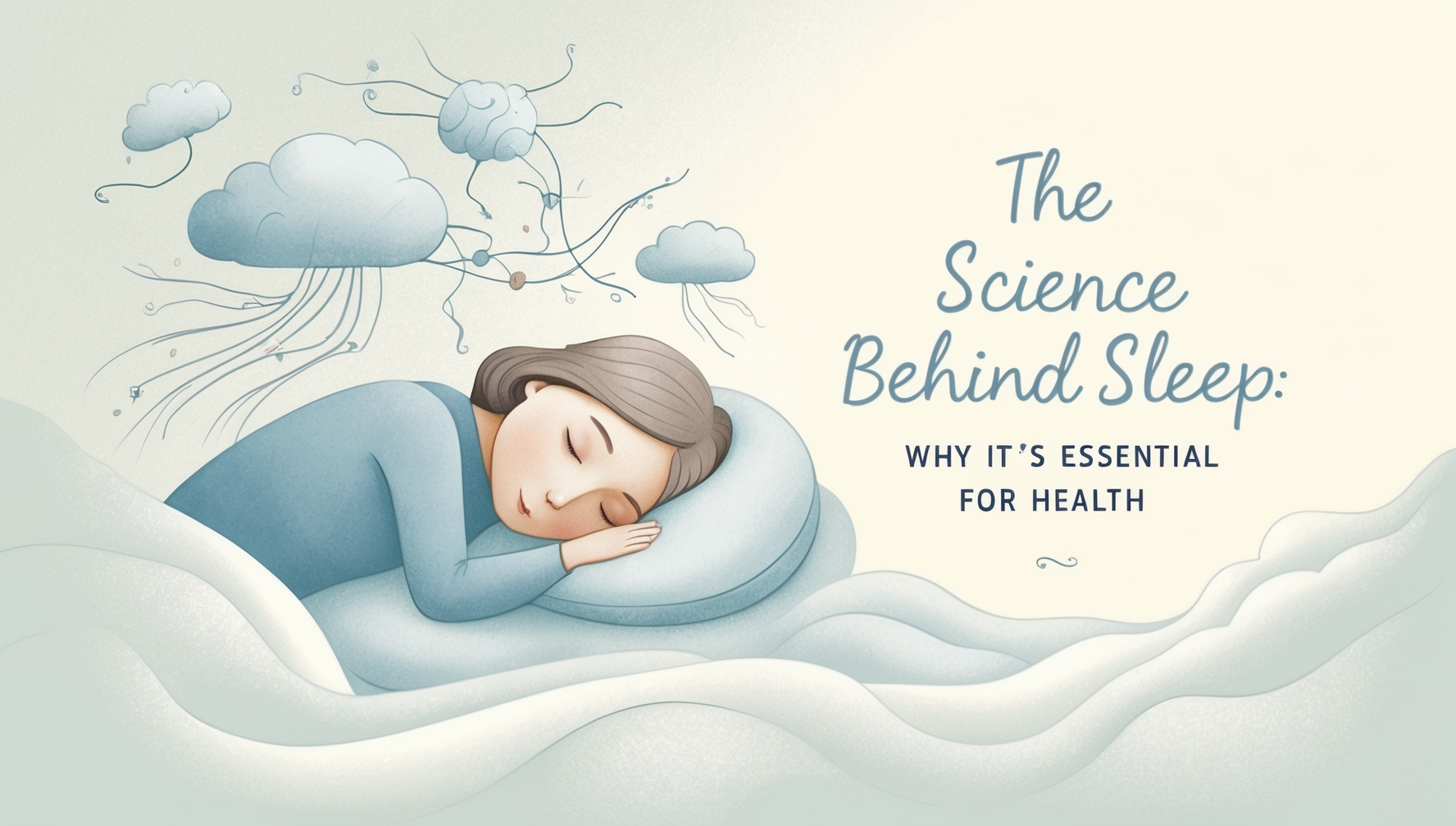Sleep is a fundamental biological process that plays a vital role in maintaining overall health and well-being. Despite its importance, many people do not prioritize sleep, leading to various health issues. This article explores the science behind sleep, its essential functions, and why getting adequate rest is crucial for physical and mental health.
Why Do We Need Sleep?
Sleep is not merely a passive state; it is an active process that supports numerous physiological and psychological functions. Here are some key reasons why sleep is essential:
- Cognitive Function and Memory: Sleep is critical for learning and memory consolidation. During sleep, the brain processes and organizes information gathered throughout the day, enhancing memory retention and problem-solving abilities. Research indicates that “sleeping on” a complex problem can improve the chances of finding a solution.
- Emotional Regulation: Adequate sleep is vital for emotional stability. Sleep helps regulate mood and manage stress, allowing individuals to respond more adaptively to emotional challenges. Lack of sleep can lead to increased irritability and difficulty in managing emotions.
- Physical Health: Sleep supports various bodily functions, including immune function, tissue growth, and repair, all of which can be influenced by genetics on health and disease. During deep sleep, the body releases growth hormone, which is essential for muscle repair and recovery. Insufficient sleep can weaken the immune system, making individuals more susceptible to infections.
- Energy Conservation: Sleep allows the body to conserve energy. Metabolic rates decrease during sleep, leading to energy savings that can be utilized during waking hours. This energy conservation is particularly important for maintaining overall health and vitality.
- Hormonal Regulation: Sleep plays a crucial role in regulating hormones that control appetite and metabolism. Lack of sleep can disrupt the balance of ghrelin and leptin, hormones that influence hunger and satiety, potentially leading to weight gain and metabolic issues.
The Stages of Sleep
Sleep is composed of several stages, each serving distinct functions. The sleep cycle typically includes:
- Non-REM Sleep: This stage consists of three phases:
- Stage N1: The lightest stage of sleep, lasting only a few minutes.
- Stage N2: A deeper sleep stage where the body begins to relax, and brain activity slows. This stage accounts for about half of total sleep time.
- Stage N3: Also known as deep sleep, this stage is crucial for physical recovery and growth. Blood pressure drops, and the body repairs tissues during this phase
- REM Sleep: Rapid Eye Movement (REM) sleep is characterized by vivid dreaming and increased brain activity. This stage is essential for cognitive functions, including memory consolidation and emotional processing. REM sleep typically occurs about 90 minutes after falling asleep and increases in duration throughout the night.
Circadian Rhythms and Sleep Regulation
The body’s internal clock, known as the circadian rhythm, plays a significant role in regulating sleep-wake cycles. This 24-hour cycle is influenced by environmental cues, primarily light exposure. As darkness falls, the body releases melatonin, a hormone that promotes sleepiness. Conversely, exposure to light in the morning helps suppress melatonin production, signaling the body to wake up.
Consequences of Sleep Deprivation
Chronic sleep deprivation can have serious consequences for both physical and mental health. Some potential effects include:
- Impaired cognitive function and memory
- Increased risk of chronic conditions such as obesity, diabetes, and cardiovascular disease
- Weakened immune response
- Heightened stress and anxiety levels
- Emotional instability and mood disorders
Conclusion
Sleep is a vital component of overall health, influencing cognitive function, emotional well-being, and physical recovery. Understanding the science behind sleep can help individuals prioritize rest and implement strategies to improve sleep quality. By recognizing the importance of sleep and making it a priority, individuals can enhance their health, productivity, and quality of life.
